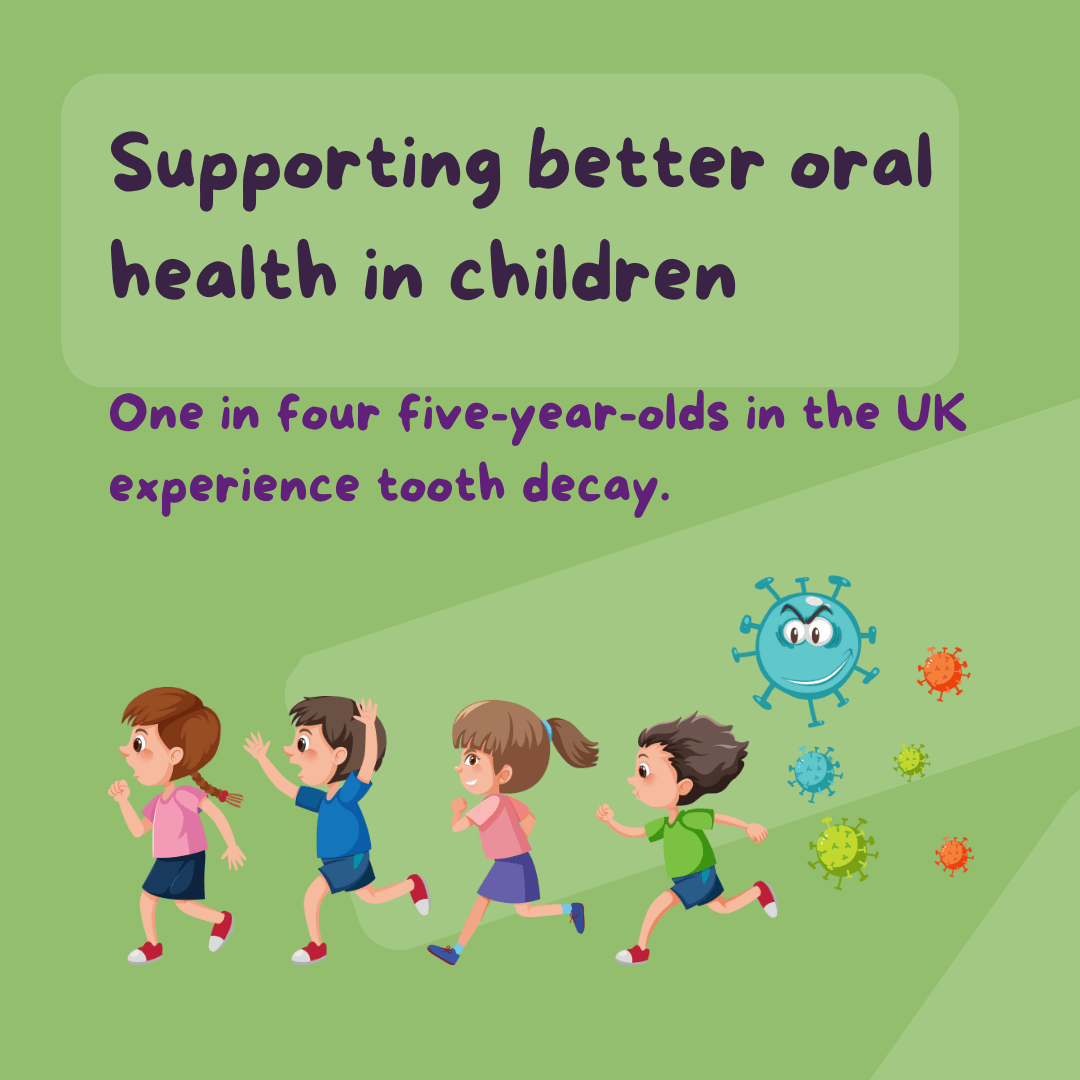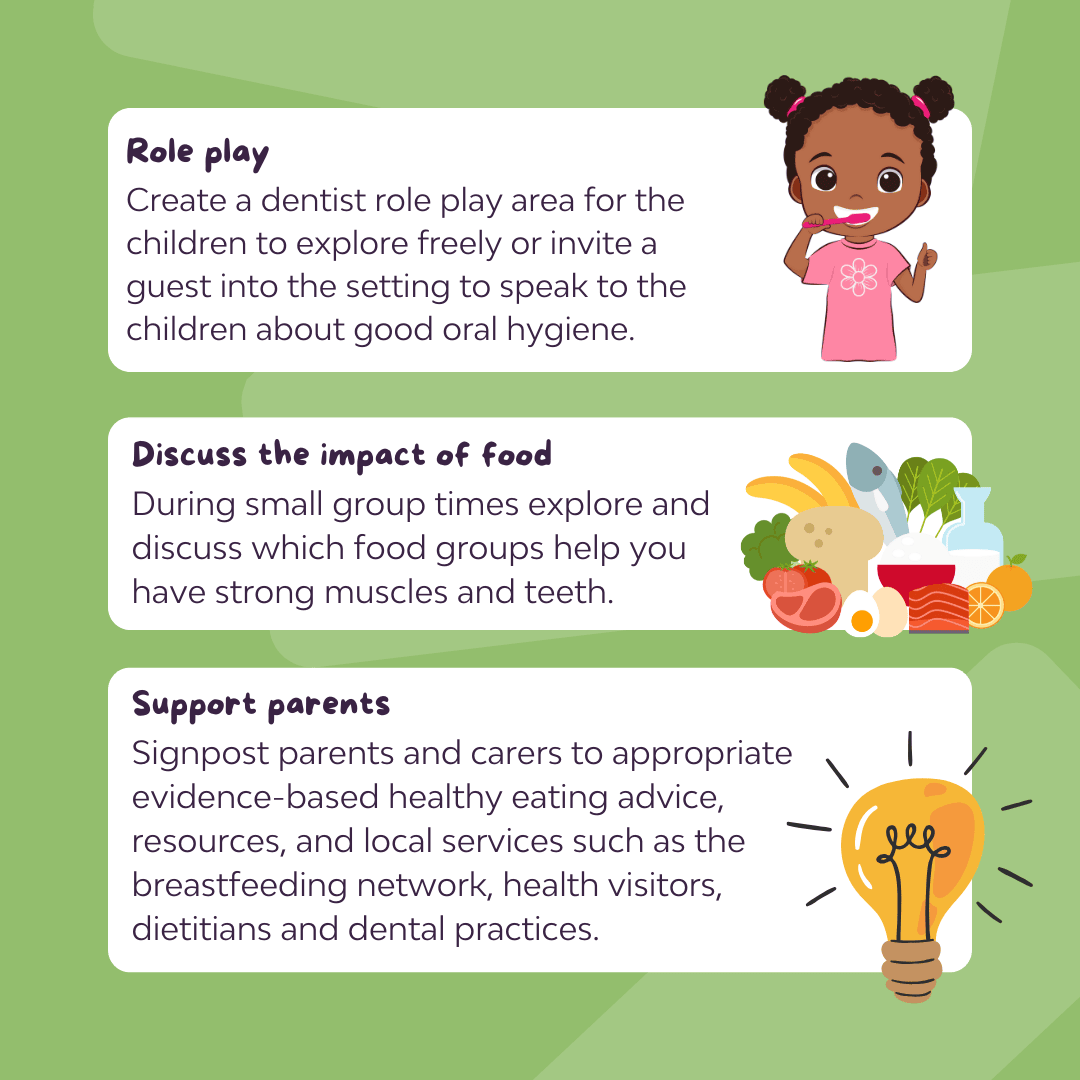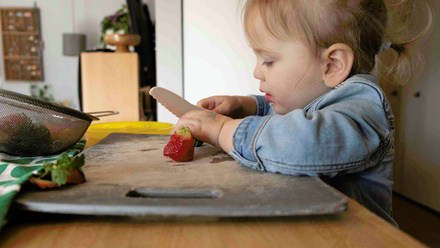Supporting better oral health in children
Listen to this article on the go.

Tooth decay is a serious problem in the UK. The most common reason for children under five to be admitted to hospital is to have teeth removed.
The facts:
- Almost one quarter of five-year-olds in the UK experience tooth decay.
- Every 10 minutes a child in England has a rotten tooth removed in hospital.
- Children living in the most deprived areas of the country are almost three times as likely to have experience of dental decay.
- Added sugars are a crucial causal factor in the development of tooth decay and obesity. These are commonly found in processed foods such as cakes, biscuits, jams and breakfast cereals.
Let’s take a look at oral health in early education and care and consider what it means for young children in our care.
Early education and care settings provide the ideal environment to promote positive eating behaviours and good oral health within their everyday practice by utilising routines and integrating care into education throughout the day. Early education and care professionals play an important role in helping to reduce tooth decay in young children by working in partnership with families to practise good oral hygiene at home too.
Birth to 5 Matters states that early education and care provisions should “provide support and advice for parents on healthy eating, oral hygiene and sleep expectations for their children”
Reports suggest that the majority of tooth decay issues in children under the age of six are left untreated. Sometimes, it can be tricky to spot tooth decay, particularly for issues on back teeth. However, there are some common symptoms to look out for that might indicate oral health concerns:
- pain and tenderness in the mouth
- dental phobia – a strong fear of dentists
- lack of sleep
- loss of appetite
- speech & language issues, including slurring and lisps.
Tooth decay is a serious problem in the UK, but the good news is that it is preventable. It not only affects a child’s teeth, but also impacts on a child’s overall wellbeing so it is essential to do all we can to prevent it.
Top tips for delivering better oral health in children
What can we do?
- Connect and embed healthy eating, oral health and wellbeing into your everyday activities and routines.
- Consider the holistic opportunities that promoting good oral hygiene has to offer and find ways to integrate practice across the curriculum.
- Provide advice & support for parents and staff. Parents are important role models for their children’s food choices, but it can be difficult for parents to access the right knowledge and practical advice.
How can we do this?
- Create a dentist role play area for the children to explore freely or invite a guest into the setting to speak to the children about good oral hygiene.
- During small group times explore and discuss which food groups help you have strong muscles and teeth.
- Involve the children in making their own healthy snacks for breaks and teatime.
- Signpost parents and carers to appropriate evidence-based healthy eating advice, resources, and local services such as the breastfeeding network, health visitors, dietitians and dental practices.

By highlighting the relationship between oral hygiene, healthy eating and wellbeing, we can empower and equip children with essential lifelong self-care skills, supporting independence and educating them from an early age on the value of a healthy lifestyle. It is also important that early education and care professionals have the right tools to hand to support families. To ensure that staff feel confident in their knowledge of what constitutes healthy eating and good oral hygiene, plan a workshop or invite the team to put together a display for parents that explains your settings approach to promoting healthy eating and good oral health.
Oral health is a problem long in the tooth
Children’s early experiences of oral health can have an influence on their dental hygiene for the rest of their lives. That's why it's so important to establish good habits as soon as possible. Children benefit when parents and staff work together and share information about how to give consistent messages about nutrition, eating healthily and promoting good oral hygiene at home and in the setting.






